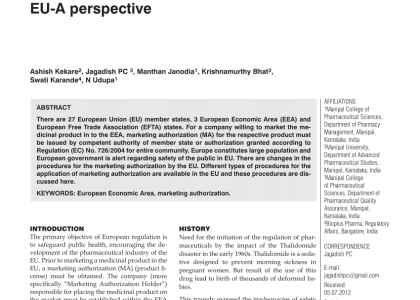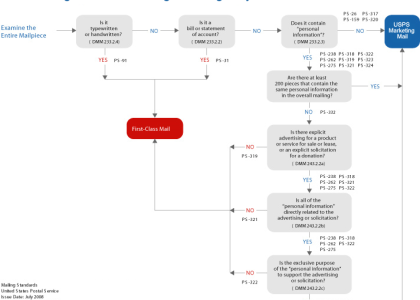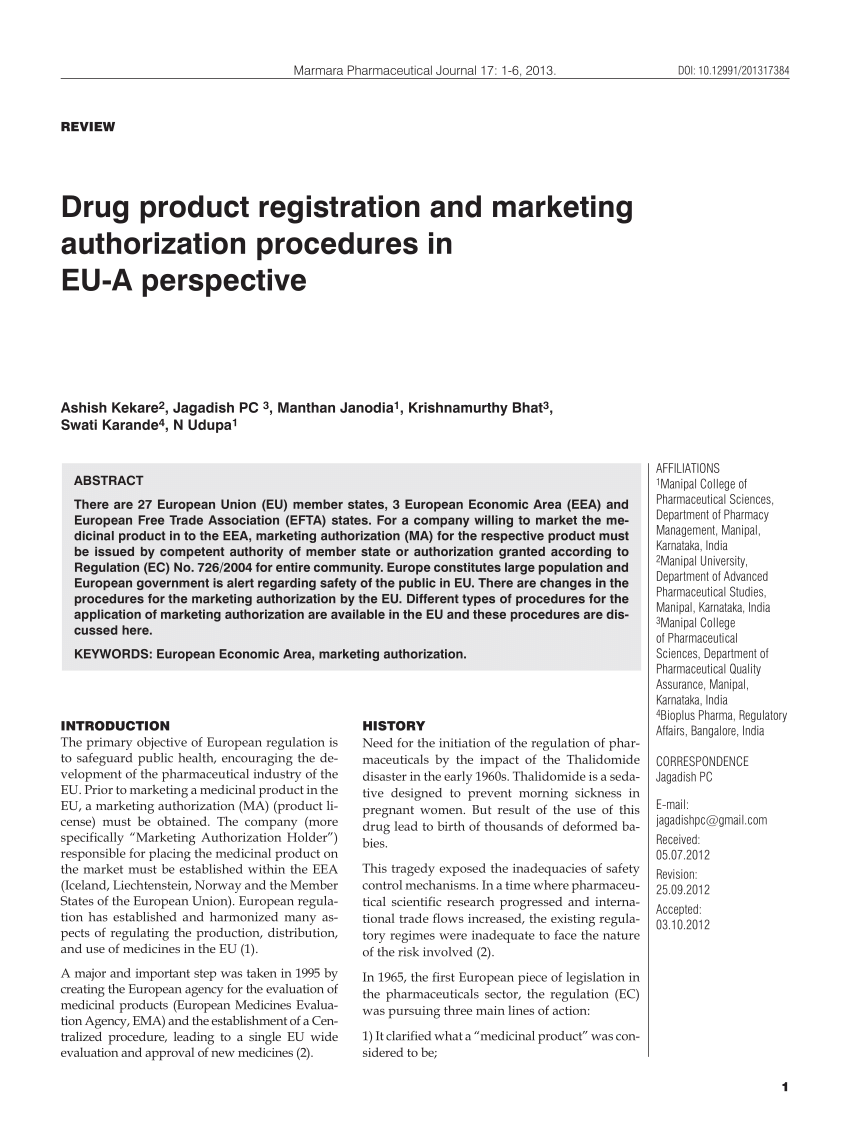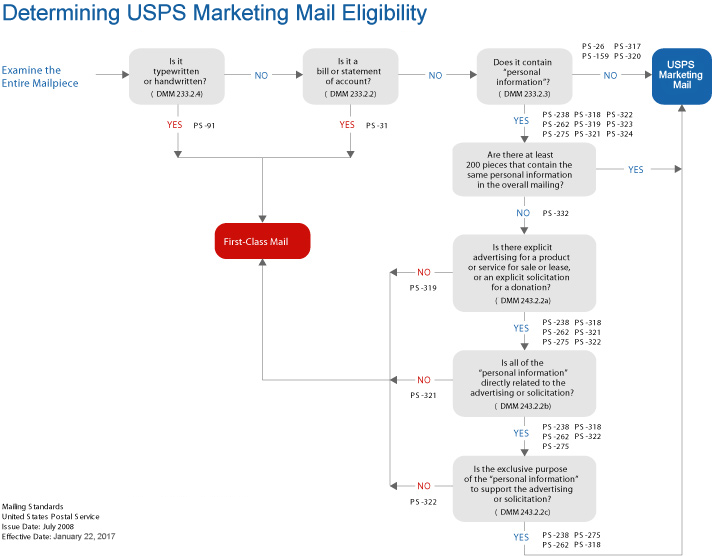Thriving in today’s competitive business ecosystem requires possessing an intimate understanding of products and markets. That’s where a Product Marketing Manager, an invaluable asset in any company, comes into play. To become a respected figure in this field, one needs to gain a set of particular skills and industry know-how.
Embarking on a path to become a successful marketing professional specializing in products involves a balance of theoretical knowledge, practical insight, and natural aptitude. This journey is neither short nor easy, but with determination and a clear vision, the destination is certainly reachable.
In this article, we intend to lay out a systematic path that everyone with ambition can utilize to become a reputable Product Marketing Manager. We will shed light on the skills and knowledge that a person needs to acquire and develop, along with the professional experiences necessary to succeed in this role.
Whether you are a novice seeking a roadmap for success or an experienced professional aiming to hone your skills and climb the corporate ladder, this guide can be your compass towards becoming a master in product marketing management.
The Significance of a Product Marketing Manager
Deciphering the key responsibilities a Product Marketing Manager holds is crucial for aspirants planning to carve out a successful career in this field. At the heart of this profession, product marketing managers help companies connect with their consumers by ensuring that products answer their needs and desires effectively.
The core role of these professionals begins with having a deep understanding of market needs. They are often involved in market research to gather crucial data and insights about consumers, competitors, and market trends. Based on their analysis, they play an instrumental role in strategising and executing marketing plans that will drive the product’s growth.
Key Responsibilities of a Product Marketing Manager
The exact responsibilities might differ between organizations, but here are few common ones:
- Defining the product’s positioning and driving the development of marketing plans.
- Leading the creation of sales collateral and product content such as case studies, product videos, website copy, blog posts, etc. to articulate the benefits of the products to the customers.
- Creating product launch plans and coordinating with multiple teams to ensure a successful and impactful roll-out.
- Evaluating promotional plans to ensure they are aligned with product line objectives.
- Acting as the primary thought leader for the products externally, including speaking engagements and written works.
Ultimately, the principal objective for the product marketing manager is to ensure a product’s success by aligning it with the market necessities and communicating its value to the target consumers. Successful product marketing managers have a blend of soft skills such as excellent communication and leadership, as well as technical skills such as data analysis and project management. Remember, your role as a product marketing manager serves as a bridge between the product team, sales team, and market, ensuring a seamless connection between all.
Necessary Abilities and Traits for Leading Product Marketers
For those desiring a prosperous career path in managing and promoting products, there are several integral abilities and personality traits to cultivate. Being a leader in product promotion management comes with a set of key skills one should ideally possess in order to excel in such a role.
1. Comprehensive Business Acumen
Possessing a broad business understanding is crucial for a product promoter manager. Product marketers must comprehend the overarching business model, pricing strategies, competitive landscape and work cross-functionally with sales, product development, and other teams. Therefore, having an in-depth knowledge about various aspects of business is vital.
2. Strong Analytical Skills
Product promoters must be unafraid to dive into data and articulate the insights they discover. This team manages key metrics associated with product adoption, customer behavior, and the like. As such, proficiency in data analysis is of utmost importance.
3. Excellent Communication
Product leaders are often required to present their ideas to various stakeholders. Whether pitching to potential clients, addressing senior leadership, or coordinating with internal teams, superior communication skills are crucial to convey ideas and strategies effectively.
4. Creative Thinking
True product promoting pioneers are not just analyzers; they are also creators. Crafting innovative marketing strategies, user stories, and promotional campaigns requires creative thinking and an out-of-the-box mindset.
5. Customer Empathy
Understanding the customer’s perspective is a great skill to possess for any product promoter. Being able to empathize with customers and give them solutions that best meet their needs is what sets successful product leaders apart from others.
6. Problem-Solving Abilities
Another ability that forms the bedrock of product marketing management is problem-solving. Facing unexpected challenges is part and parcel of the job. Thereby, leading product promoters need to have strong competency in finding effective and efficient solutions to problems as they arise.
In conclusion, the journey to becoming a leading product marketer requires consistent development in a wide range of skills. With the right mix of talents, along with passion and dedication, one can chart a successful course in this rewarding field.
What Academic Qualifications are Needed for a Role in Product Marketing Management?
In aspiring to excel in the realm of product marketing management, specific academic qualifications play an instrumental role. Grasping the comprehensive understanding needed to create winning marketing strategies can be facilitated by obtaining some degree of college education.
The most commonly sought after degree by employers in this field is a Bachelor’s Degree in Business, Marketing, or a related discipline. These programs offer foundational knowledge in areas such as:
- Marketing principles
- Business economics
- Consumer behavior
- Market research
- Product management and development
In addition to a bachelor’s degree, pursuing a Master’s degree in Business Administration (MBA) is beneficial in enhancing your career prospects. Specialization in marketing during the MBA will heighten your understanding of advanced concepts, the relationship between market and products, and strategies for product growth and differentiation.
While academic accomplishments form the basis, it’s also crucial to note that some employers prefer candidates with certification in product marketing. This serves as proof of your capability and dedication to the profession, thus setting you ahead in the competitive job market. A few notable certifications include:
- Certified Product Manager from Association of International Product Marketing and Management (AIPMM)
- Product Management Certificate from University of California – Berkeley
- Professional Certified Marketer from American Marketing Association (AMA)
Although not a strict necessity, your competency in the field of product marketing management can be bolstered by continuing education programs, workshops, or webinars that keep you updated on the latest industry trends and best practices.
Lastly, remember, gathering hands-on experience through internships or entry-level positions can help put your acquired knowledge into practical use, acting as the stepping stones for climbing the ladder to a successful career in product marketing management.
The Significance of Gaining Early Work Experience and Internships for those Aspiring to be Leaders in Product Marketing
The journey to becoming a successful leader in product marketing often requires gaining practical experience early on in your career. Internships and early job experience play a pivotal role in shaping one’s career graph and helps in acquiring the requisite skills set for a proficient role of product marketing management.
Grounding with Internships
Internships provide individuals a taste of real-world professional scenarios. Taking up internships within marketing or product development departments not only offers useful insights into the industry workings, but also equips young professionals with valuable first-hand experience. Interns have the chance to learn directly about customer preferences, product trends, and market conditions which are fundamental aspects of a product marketing manager’s role. They also acquire soft skills like networking, communication, collaborative working, which are ‘must-haves’ for a prospective product marketing manager.
Experience in Early Career Stages
The period of one’s early career is a phase of extensive learning and skill acquisition. During this phase, individuals are in the process of understanding their sector thoroughly, building contacts, and adapting to the industrial ethos. Early professional exposure can therefore be invaluable for those looking to climb the ladder in the product marketing domain.
Real-world experience in the early stages of a career allows individuals to apply their theoretical learning to practical situations. As they move ahead and take on higher responsibilities, this understanding of ground realities helps in devising sound marketing strategies and making well-informed decisions. The experience here aids in developing a comprehensive view of the industry, understanding consumer behaviour, and predicting market trends accurately which are critical for the role of a product marketing manager.
Furthermore, early career experiences often entail dealing with failures and uncertainties. These experiences can sharpen problem-solving skills and adaptability, making individuals more resilience – a trait needed by every successful product marketing manager.
In conclusion, internships and early professional experiences can be seen as stepping stones to a fruitful career in product marketing management. They offer experiences and lessons that textbooks often fail to, thus enabling aspiring professionals to be well-prepared for their goal of becoming top product marketing managers.
Acquiring Crucial Knowledge About the Product and Understanding the Industry
Gaining comprehensive knowledge of the product you’re marketing is indisputably a critical aspect on the path to becoming a successful product marketing manager. When you have a profound understanding of the product inside and out, you are well-equipped to develop effective marketing strategies that appeal directly to your target market. This understanding encompasses everything from the unique features and benefits of the product, to the problem it solves for consumers.
Diving into Product Specifications
Begin your journey by immersing yourself in all aspects of your product. This includes thorough research into the product’s functionalities, its unique selling points, and most importantly, how it benefits the customer. Your understanding should also extend to the nuances of the product’s applications, its update schedule, upcoming features, and how it compares to competitors.
Understanding the Industry Landscape
Another essential dimension to pay attention to is comprehensive understanding of the market landscape. This includes identifying your main competitors, understanding market trends and staying updated on industry news. Being a frontrunner in your industry requires staying ahead of these variables.
- Familiarize yourself with principal competitors and their products. This helps you understand where your product stands in relation to theirs.
- Stay updated with the latest trends affecting your industry and product. This might involve keeping a pulse on technological advancements or changing consumer behaviors.
- Network with industry professionals and join in on discussions at industry events and forums. They often provide valuable firsthand information that can lend a competitive advantage.
The combination of deep product knowledge and comprehensive industry insight puts you in the optimal position to embark on crafting powerful and relevant marketing strategies, thereby paving the path to becoming a successful product marketing manager.
Building a Powerful Network for Success in Product Marketing Management
For those seeking to flourish as product marketing managers, forging a robust professional network can be a crucial success factor. These connections serve as a valuable resource for gathering industry insights, identifying emerging market trends, and gaining access to new professional opportunities.
Networking can sound intimidating, but remember it’s about building professional relationships.
Why a strong network matters for product marketing managers?
Networking is not just about knowing people, but it’s more about understanding the market, customer behavior, and competitor strategies. This understanding can only come when you have a robust network that gives you firsthand information and the latest updates from the industry. Being well-networked can also offer advanced notice of job vacancies, inside information about future industry directions, and direct access to potential customers, partners, or investors.
How to build a strong network?
Building a reliable professional network doesn’t happen overnight. It requires a strategic and consistent approach. Here are some steps to help you:
- Start with existing connections – Reach out to people you already know like co-workers, friends, alumni, etc. and let them know about your professional goals.
- Attend industry events and webinars – These platforms help you meet like-minded professionals.
- Become active on professional networks like LinkedIn – Regularly updating your profile and sharing industry-related content can help attract connections in your field.
- Keep in touch – Make sure to regularly follow up and stay in touch with your connections.
Remember that networking isn’t just about what you can gain from others. Equal emphasis should also be placed on how you can add value to your connections. Building a strong network as a product marketing manager is all about mutual benefits and long-lasting professional relationships.
The Significance of Ongoing Education and Career Advancement
Evolution is an integral element of any profession, especially in roles tied to product promoting and management. The significance of adopting a mindset of constant learning and professional growth cannot be overstated in this context. This proactive approach guarantees that the marketing manager remains relevant and competent in an ever-evolving marketplace.
Why is Constant Learning Critical?
Foremost, the environment in which a merchandise marketing manager operates is continually altering. Be it through emerging technological advancements, changing consumer behavior, or evolving industry trends, the factors that determine how effectively a product can be marketed are never static. Understanding these changes and learning how to adapt is an absolute necessity. Continuous learning gives the manager the ability to foresee market trends, comprehend new marketing technologies, and understand new buyer behavior patterns.
The Value of Professional Development
- Professional growth on the other hand is the progression of skills or job performance capability, frequently through increased qualifications or advancing in a job role. For a product marketing manager, professional growth might also entail broadening their understanding of different market segments, improving negotiation capabilities, or mastering the art of digital marketing.
- Apart from contributing to personal achievement, professional development frequently leads to increased job satisfaction and morale, which in turn leads to an increase in productivity and a positive impact on the brand or company represented. Employers who invest in the professional growth of their employees are typically rewarded with a more motivated and high-performing team.
Hence, a product marketing manager’s journey towards success should always be marked by continuous learning and constant professional development. Being armed with the latest knowledge and skills is a sure way of staying ahead of the curve and positioning oneself as an invaluable asset in the field of product marketing.
Enhancing Your Skills in Marketing for Products to Achieve Success
Having a successful career in product or brand marketing management typically depends on your ability to leverage your skills effectively. In essence, successful brand managerial roles require the proactive use of your knowledge and capabilities. The following sections delve into how you can capitalize on your existing competencies for your success.
Understanding the Product
Knowing your product is a critical element of successful product promotion. As a product promotion professional, your understanding of the product should be intimate. You should be acquainted with every aspect of the product, including its strengths, weaknesses, and target market. This understanding informs your marketing strategy, influencing everything from pricing to messaging.
Market Research
Another essential skill is conducting and understanding market research. Identifying market trends, customer preferences, and understanding market needs are vital when crafting your product’s marketing strategy. This research not only enhances your understanding of the product but also helps to identify its potential market positioning.
Effective Communication
In product marketing, your ability to communicate effectively determines how efficiently you persuade your customers about the product’s benefits. You should be capable of creating enticing descriptions of the product, presenting its benefits in a way that resonates with your target market. Effective communication also involves listening to feedback and incorporating it into your marketing efforts, ensuring that your audience feels heard and valued.
Strategic Planning and Executing
Planning is the bedrock of successful product marketing. To adequately plan, you need to understand your product’s unique value proposition, your customers’ needs, and how to position your product to meet these needs. Good strategic planning enables you to effectively allocate your resources, ensuring a high return on investment. Importantly, your execution of the plan should be just as meticulous as the planning itself.
Overall, with the right approach to leveraging your product marketing skills, you can increase your chances of success in the marketing landscape.
Navigating Your Way to the Top of the Product Promotion Career
Being a successful product promotion manager involves much more than simply understanding the basic responsibilities of the job. If you want to climb the ladder in the product promotion sector, you need to employ effective strategies and demonstrate your passion for the role at every step of the way.
Invest in Learning and Development
One crucial step to advancing in your product promotion career is to embrace continuous learning. The world of marketing is dynamic, and it requires you to stay abreast of the latest trends, tactics, and tools. Consider pursuing advanced degrees, professional credentials, or simply attending workshops and webinars.
Moreover, you should aim at acquiring an in-depth understanding of your industry: its challenges, customer base, competitors, and unique selling points. This knowledge will make your product promotion strategies more effective, and demonstrate your commitment and capability to your employers.
Acquire and Demonstrate Relevant Skills
Every successful product promotion manager needs an array of skills that go beyond pure marketing knowledge. Soft skills such as team coordination, leadership, problem-solving, or communication might frequently be overlooked, but they are often what sets great managers apart.
Moreover, you should have a grip on technical and data-oriented skills like market analysis, SEO, or user experience design. In today’s digital age, these skills are becoming more and more crucial in creating successful marketing strategies.
Proactively Seek Challenges and New Opportunities
If you want to reach the peak of product marketing management, it’s not enough to just excel at your current role. Show initiative by seeking out new challenges and asking for additional responsibilities. Volunteering for challenging projects or tasks that others avoid can demonstrate your readiness for advancement.
Furthermore, networking with professionals in your field can open doors to opportunities that you might not otherwise know about. Attend industry conferences and events, join professional organizations, and make use of online platforms to connect with your peers.
Remember, climbing to the top requires effort, dedication, and strategic planning. Equip yourself with the necessary skills and knowledge, seize opportunities, and make sure your goals are known. In time, your commitment and drive will help you ascend the ladder of product marketing management!
Keeping up with Success in the Role of a Product Marketing Manager: A Continuous Endeavor
Success is a journey, not a destination, especially when it comes to careers that are intrinsically competitive and continuously evolving, such as that of a product marketing manager. Once you attain a level of success in this role, the challenge then becomes how to maintain it. This involves certain strategies to keep afloat in a dynamic marketplace.
First and foremost, staying updated is crucial in order to remain relevant and effective. Markets, consumer behaviors, and technologies are all dynamic elements that require vigilant monitoring and quick adaptability. A successful product marketing manager never stops learning about the latest trends and industry developments.
- Continuous improvement: Training should not cease after assuming the position of a product marketing manager. Understanding your strengths and working on your weaknesses should be an ongoing process.
- Customer oriented: The most successful product marketing managers are those who maintain a strong customer focus. They continuously work on understanding their customer base better and redefining their marketing strategies accordingly.
- Innovative thinking: In the cut-throat competitive market, innovation is key. Successful product marketing managers should always be willing to break the mold and try different, innovative techniques and strategies.
- Excellent communication: Communication has a huge impact on how a product marketing manager performs. Not just with the customers, excellent communication should also be maintained internally.
Lastly, but importantly, maintaining a harmonious work-life balance and a positive attitude ensures you stay motivated and deliver the best performance as a product marketing manager. In the face of challenges, a positive disposition can play a vital role in problem-solving and staying committed to deliver exceptional results.
FAQ: How to become a product marketing manager
What is the role of a product marketing manager in maintaining success for a product or a brand?
The product marketing manager plays a crucial role in maintaining product or brand success. They identify the product’s unique value proposition, positioning the product in the market, and targeting the right customer segment. Also, they develop marketing strategies and campaigns to drive product growth and maintain customer engagement.
How can a product marketing manager ensure their product’s success in the market?
A product marketing manager maintains success by staying on top of market trends, understanding customer behavior and needs, and refining the product’s unique selling proposition. This involves regular monitoring and adjusting of marketing strategies, product presentation, and competitive analysis. Additionally, constant communication and collaboration with other teams like sales, product development, and customer service are also essential.
What skills are necessary for a product marketing manager to stay successful?
On top of traditional marketing skills, product marketing managers need strategic thinking, excellent communication, project management, and data analysis skills. Knowledge in market research, customer segmentation, product development, and understanding of marketing tools are also beneficial.
What are the biggest challenges in maintaining success as a product marketing manager?
Challenges include keeping up with rapidly changing market trends, customer preferences, and competitive landscape. It’s also challenging to align different teams’ perceptions and expectations about the product, as well as efficiently communicating the product’s value proposition to both internal teams and customers.
Why is it important for product marketing managers to understand their customers deeply?
Understanding their customers deeply helps product marketing managers in creating a precise customer persona. It leads to more effective marketing strategies that cater to their needs, preferences and behaviors. It also aids in product development and improves overall customer experience.
How does a product marketing manager work with other teams in an organization?
A product marketing manager works closely with sales, product, and customer success teams. They align marketing messages, plan and execute product launches, offer sales support, and gather feedback to improve the product. They act as a bridge between technical and non-technical teams and the customers.
Can you explain the role of data in product marketing?
Data is imperative in product marketing. It helps in understanding market trends, customer behavior, and the product’s performance. It can guide the decision-making process, help in refining marketing strategies, and aid in validating the product-market fit. Thus, a product marketing manager must be adept at data analysis.


















